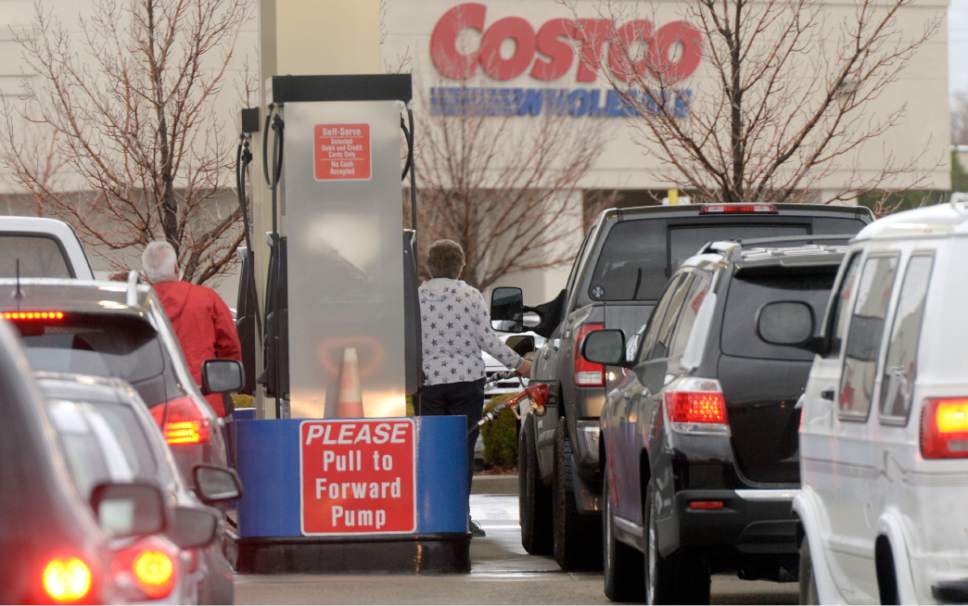This is an archived article that was published on sltrib.com in 2017, and information in the article may be outdated. It is provided only for personal research purposes and may not be reprinted.
A bill to kick-start automatic increases in the state's gasoline tax — which otherwise may not have begun for another decade — won final approval Wednesday in the Legislature.
Legislative analysts estimate SB276 will increase taxes about 0.6 cents per gallon beginning Jan. 1, 2019, and 1.2 cents a gallon in 2020 by reworking formulas for automatic gas taxes that were approved two years ago.
The current state gasoline tax is 29.4 cents a gallon.
The House passed SB276 on a 58-15 vote, and sent it to Gov. Gary Herbert for his signature or veto. It previously passed the Senate 26-2.
The proposed increase could cost a typical motorist — who drives about 12,000 miles a years in a vehicle that gets 20 miles to the gallon — about $3.60 in 2019, and $7.20 in 2020, legislative analysts say.
Rep. Mike Schultz, R-Hooper, the House sponsor of the bill, said changes are expected to increase the gas tax by about a penny a year until it hits a legal cap of 40 cents a gallon, perhaps in 10 to 15 years.
In 2015, the Legislature voted to raise the gas tax by 4.9 cents a gallon, and included a provision to allow automatic tax hikes as gas prices rise.
But gasoline prices were high in 2015 when that was enacted, and target prices for when to trigger increases were also set relatively high. Gas prices have since plummeted.
Because of that, analysts said that the automatic tax hikes originally expected to begin next year actually would not have come until 2028 or so.
The bill also allows for bigger tax hikes annually — 16 percent, instead of the current 12 percent, of the average wholesale price of gasoline over the previous three years, Schultz said.
He said the average wholesale price over the past three years has been about $1.65 a gallon (while retail prices are now around $2.40 a gallon). The bill would trigger increases when average wholesale rates reach $1.78 a gallon.
Rep. John Knotwell, R-Herriman, said estimates of what year the gas tax may kick in and for how much are "a pure guess" for now. "We may never get to $1.78," he warned the House GOP caucus before floor debate on the bill.
So he argued SB276 "it is not a tax increase," because "no one will see it [a tax hike] for two years if it happens."
The bill also makes a significant policy change: not all of the new money from the gas tax hike would go to transportation.
It would put 35 percent into the general fund, where lawmakers could choose to divert it to non-transportation uses. That is seen as a way to reduce current subsidies for transportation out of the general fund from sales tax and other sources.
Schultz said 50 percent of transportation funding currently comes from the general fund.
Schultz said the increase is needed to keep pace with inflation to help maintain the state's roads.
Seventy percent of gas tax goes to the state, and 30 percent goes to cities and counties for local roads.
The tax hike was opposed in an earlier hearing by John Hill, representing the Utah Petroleum Marketers and Retailers Association, which represents local gas stations and convenience stores.
He said the tax increases are often mistakenly viewed as higher prices charges by retailers. Hill also said the Legislature instead should vote anytime it choose to raise those taxes, instead of allowing them to come automatically.



